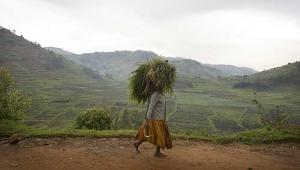The Climate Investment Funds are a unique pair of financing instruments that seek to scale up financing through multilateral development banks towards low-carbon and climate-resilient projects. Financing is coming from the Climate Investment Funds’ Scaling Up Renewable Energy in Low Income Countries Programme (SREP).
In Uganda, where currently only 17% of the population has electricity access, the funding will help to advance geothermal exploration, the building of mini-grids and the development of wind power.
SREP senior programme coordinator Zhihong Zhang said that 29 million people in the country need access to electricity and the funding will help “tackle this challenge”.
James Baanabe, Uganda’s commissioner at the Energy Efficiency and Conservation Department in the Ministry of Energy and Mineral Development, added: “Energy is the driver of social economic development so adequate and reliable renewable energy is vital to our vision of becoming a prosperous country within 30 years.”
Similarly, in Rwanda only 23% of the population have electricity access. By 2018 the country is committed this to have increased to 70%.
The SREP funding will be used here to help develop financially stable long-term markets for private sector provision of off-grid electricity in the east African country.
Zhang said: “Rwanda has a very ambitious target of electrification through both on-grid and off-grid solutions. SREP support will target the development of off-grid energy markets to help bring electricity to unserved communities in rural areas, create employment opportunities and generate income.
“SREP funding can act as a catalyst and will help improve the enabling environment conditions to unlock and systematically scale-up private investments.”
He said about 1.5 million Rwandans are expected to benefit from the SREP programme.
Robert Nyamvumba, director of the energy division in Rwanda’s Ministry of Infrastructure, said: “This endorsement will help to unleash the potential of the private sector to provide off-grid energy solutions using renewable energy sources.”
It will also grant those living in rural areas access to electricity and create an enabling environment for businesses and communities, he added.













